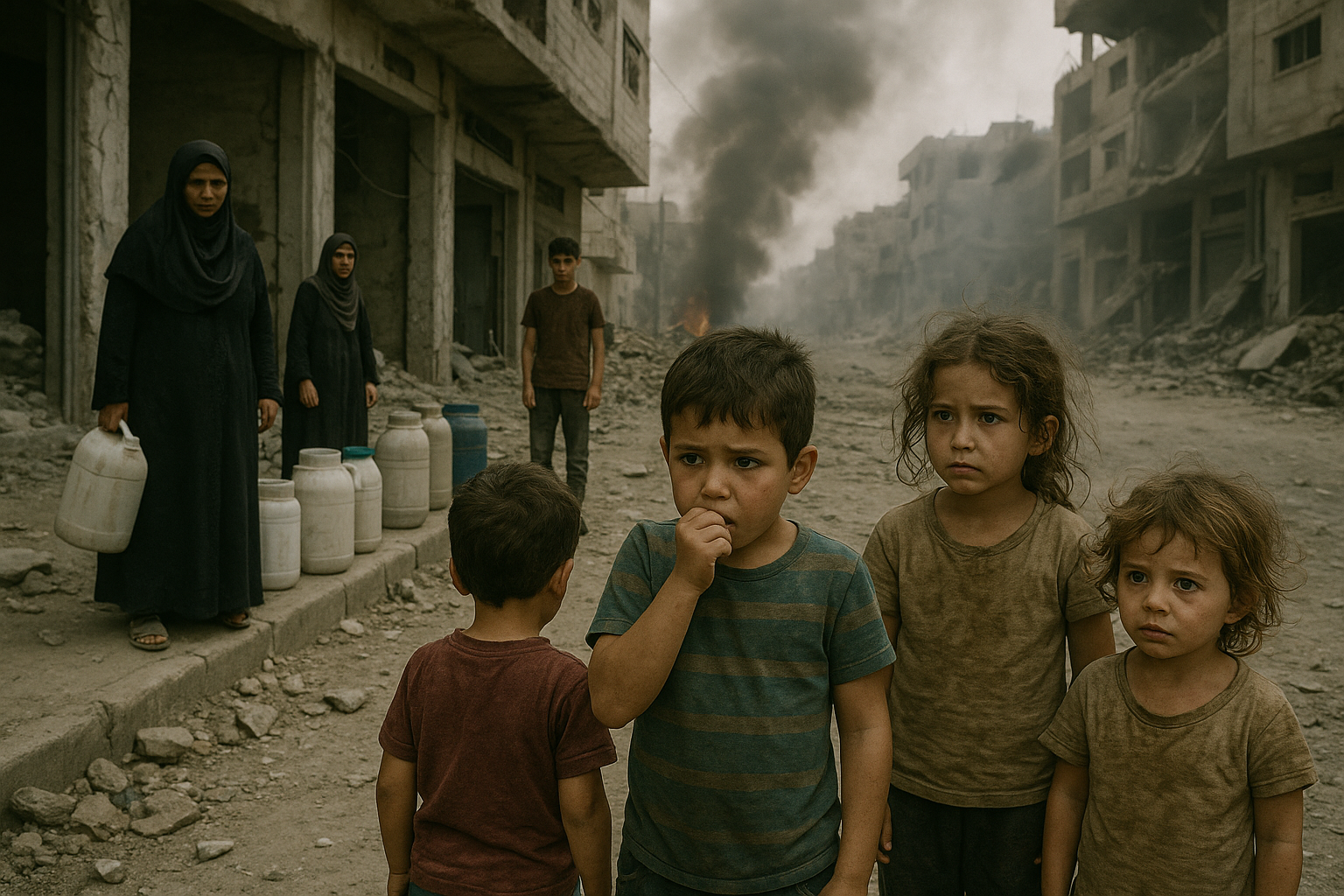Global Call Intensifies for Ceasefire and End to Israeli Occupation Before UN Meet
The World Food Programme, UNICEF, WHO, and numerous NGOs warn that Gaza is on the verge of complete societal collapse, as starvation, disease, and trauma engulf a besieged and displaced population.

As global leaders prepare to convene in New York for the High-Level Conference on Palestine, the urgency for meaningful international action is louder than ever. With the humanitarian crisis in Gaza spiraling into unprecedented catastrophe, diplomatic voices are intensifying demands for an immediate ceasefire, a halt to the occupation, and tangible steps toward a two-state solution.
In a powerful and emotionally charged statement ahead of the Conference, senior UN officials and humanitarian leaders are calling on Israel to end its unlawful, decades-long occupation of Palestinian territory, and for governments across the globe to exert all available pressure to bring about a permanent end to the bloodshed in Gaza.
“Every day, we are witnessing a tragedy of unspeakable proportions,” said a senior official. “We see children starving, entire families wiped out, and a society being systematically deconstructed under the weight of war and occupation. It is not enough to bear witness—we must act.”
Humanitarian Disaster Beyond Comprehension
According to data released by the Ministry of Health in Gaza, over 200,000 Palestinians have been killed or injured since October 7, accounting for a staggering ten percent of the population. Among the dead are more than 300 humanitarian workers, many of whom were UN staff operating in shelters, food distribution centres, and hospitals.
Aid distribution in Gaza has descended into chaos, with militarized centres operated by the Gaza Humanitarian Foundation—a body reportedly supported by both the U.S. and Israeli governments—failing to meet even minimal humanitarian standards. More than 1,000 people have died since late May while attempting to access food in what have become deadly aid zones, overwhelmed by desperation and lawlessness.
The World Food Programme, UNICEF, WHO, and numerous NGOs warn that Gaza is on the verge of complete societal collapse, as starvation, disease, and trauma engulf a besieged and displaced population.
Deliberate Displacement and Annexation
The situation in the occupied West Bank is similarly grave. Israeli settlers and security forces have intensified home demolitions, land seizures, and acts of violence against Palestinian communities. Reports point to the cutting of water supplies, destruction of infrastructure, and what many human rights organizations have described as a “systematic regime of apartheid and ethnic cleansing.”
Simultaneously, in Gaza, the military’s repeated displacement orders have corralled Palestinians into progressively smaller and more densely populated areas. The latest evacuations have forced tens of thousands to flee, often under shellfire, into areas lacking shelter, food, or medical care.
“There is now clear evidence of plans to force Palestinians out of Gaza altogether,” said one senior humanitarian official. “If allowed to proceed, this would represent a violation of international law on a historic scale.”
Calls for Accountability and Legal Responsibility
The upcoming High-Level Conference is being framed as a litmus test for global leadership. International bodies, including the United Nations, have emphasized that failure to act could render complicit those countries with the power to intervene but choosing silence or inaction.
“There must be accountability,” said a UN representative. “Governments that turn a blind eye are abdicating their moral and legal responsibilities. We have warned repeatedly about war crimes, crimes against humanity, and even the risk of genocide. The International Court of Justice has already issued provisional measures. These must be enforced.”
The UN has long condemned the horrific Hamas-led attacks on October 7, which left Israeli civilians dead and traumatized. However, the disproportionate scale of retaliation since then has drawn mounting global condemnation, with the indiscriminate targeting of civilians, health workers, and aid infrastructure in Gaza believed to be in violation of international law.
A Global Mandate for Peace and Statehood
Beyond the immediate need for a ceasefire and humanitarian aid, international advocates stress that progress toward a viable Palestinian state must be revived. The two-state solution—enshrined in UN resolutions and once seen as the cornerstone of peace in the region—has never seemed more distant.
Efforts to support Palestinian state-building are being reignited, with emphasis on human rights, justice, and the rule of law. There is also recognition of the long-term need to support victims and survivors through accountability mechanisms, reparations, and psychological rehabilitation programmes.
The statement concludes with a clear message:
“We stand ready to support the Palestinians in building a peaceful, just state. But first, the killing must stop. Civilians must be protected. Humanitarian aid must be delivered without delay. And the world must speak with one voice: enough is enough.”
As diplomats gather in New York, the world watches not just with hope—but with a demand for action that matches the scale of the tragedy.










